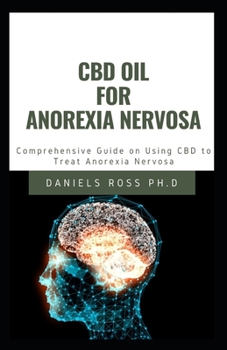CBD Oil for Anorexia Nervosa: Your Complete Guide on Using CBD Oil
Many of us wish we looked different or could fix something about ourselves. That's only human. But if a preoccupation with being thin has taken over your eating habits, thoughts, and life, you may have an eating disorder. When you have anorexia, the desire to lose weight becomes more important than anything else. You may even lose the ability to see yourself as you truly are. But you're not alone and recovery is possible. With the right treatment and support, you can break anorexia's self-destructive pattern and regain your health and self-confidence.The cause of anorexia nervosa is believed to be multifactorial with psychological, environmental and biological factors that all play a role.However, some people can have several risk factors without being affected, and other individuals that are not considered at high risk may develop symptoms of anorexia nervosa. Psychological Factors History of depression or anxiety Poor handle of stress Excessive fear or doubt about the future Restraint of emotionsTendency towards perfectionismFeeling of obsession and compulsionPhobia of being fatEnvironmental FactorsStress at school or workPhysical or sexual abuseDifficult family relationshipsBullying about body weight or shapeStressful life events (e.g. loss of job, relationship breakdown)Biological FactorsThere appears to be a familial link to anorexia and individuals with a family history of eating disorders, depression or substance misuse are more likely to be affected. An individual with a close relative with anorexia is ten times more likely to suffer from anorexia nervosa than someone with no family history.This may arise from a genetic link that is inherited from the parents, although it could also be an acquired trait from environmental circumstances, such as developing negative thoughts about body image similar to other members of the family.The brain and hormonal level changes during puberty are also thought to be associated with anorexia nervosa, and the incidence of the condition is highest during this time. In particular, feelings of stress, anxiety and low self-esteem are thought to trigger anorexia.Abnormal biochemical makeup of the brain may also be involved. The hypothalamic-pituitary-adrenal axis (HPA) regulates the release of neurotransmitters such as serotonin, norepinephrine and dopamine, which affect the mood and appetite of the individual. Individuals with anorexia nervosa often have decreased levels of serotonin and norepinephrine, suggesting that they may be involved in the pathology of the condition.When it comes down to it, both CBD and cannabis as a whole can be incredibly effective treatments for anorexia and other eating disorders. However, that being said there are many areas where CBD comes out on top, from psychoactive THC through to affordability and efficacy in the treatment of symptoms. Get this Book NOW to know more
Format:Paperback
Language:English
ISBN:170631048X
ISBN13:9781706310488
Release Date:November 2019
Publisher:Independently Published
Length:50 Pages
Weight:0.15 lbs.
Dimensions:0.1" x 5.5" x 8.5"
Customer Reviews
0 rating





